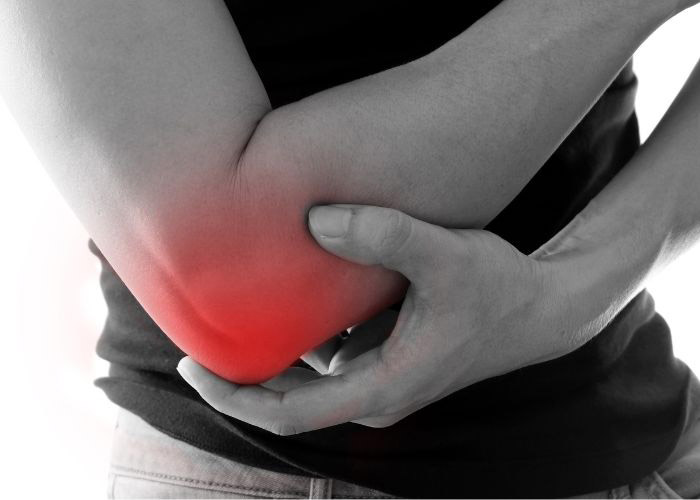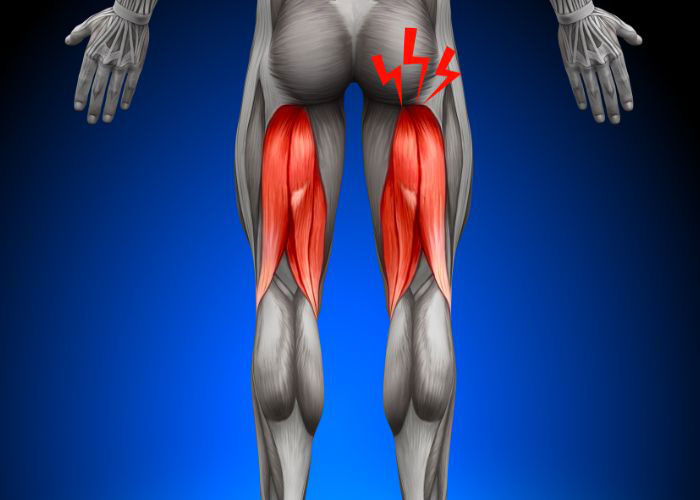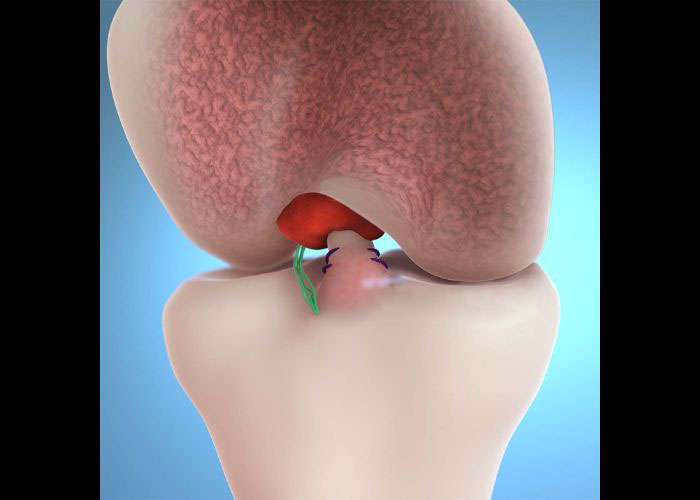What is osteochondritis dissecans of the capitellum?
The capitellum is the articulation point between the bony prominence on the lateral humerus (upper arm bone) and the head of the radius (thumb side forearm bone). These bony structures are enveloped in a shiny and slippery connective tissue (articular cartilage) that protects the bone with joint movement. The bone layer underneath this articular cartilage is known as subchondral bone and contains the blood vessels that supply the elbow joint with nutrients. Osteochondritis dissecans (OCD) of the capitellum is a condition that results when this blood supply is compromised. This lack of blood flow causes the subchondral bone to die and eventually separate from the bone. OCD of the capitellum is prominently seen among athletes, particularly children and teens, that participate in sports with repetitive overhead motions (such as baseball) or continual stress on the elbow (such as gymnastics). Dr. Ronak Mukesh Patel, orthopedic elbow specialist serving patients in Sugar Land, Pearland, and the Houston, Texas area, has the knowledge and understanding, as well as substantial experience, in treating patients who have experienced osteochondritis dissecans of the capitellum.

How is osteochondritis dissecans of the capitellum caused?
There are two types of osteochondritis dissecans (OCD) of the capitellum: 1) stable OCD, in which the elbow retains a full range of motion, and 2) unstable OCD, in which the elbow range of motion is reduced. Although an exact cause of OCD of the capitellum has not been determined, there are a number of ways that can lead to this condition. Chronic use or substantial stress to the capitellum is the most commonly recognized cause of this condition. Other mechanisms include multiple traumatic events involving the capitellum, enhanced valgus load across the elbow joint, and a genetic predisposition.
What are the symptoms of osteochondritis dissecans of the capitellum?
Individuals with suspected osteochondritis dissecans (OCD) of the capitellum frequently complain of elbow pain over the lateral elbow. This elbow pain often increases with athletic activity and decreases with rest. A reduced range of motion of the elbow may occur. Individuals may also experience difficulty with straightening the elbow.
How is osteochondritis dissecans of the capitellum diagnosed?
To confirm a diagnosis of osteochondritis dissecans (OCD) of the capitellum, Dr. Patel will gather a detailed medical history followed by a thorough physical examination. Diagnostic imaging studies are the most useful tools to confirm OCD of the capitellum. X-rays help identify any bone-related damage whereas magnetic resonance imaging (MRI) helps analyze the soft-tissue structures of the elbow.
What is the treatment for osteochondritis dissecans of the capitellum?
Non-surgical treatment:
If osteochondritis dissecans (OCD) of the capitellum is confirmed in its early stages, conservative therapies may be sufficient in managing symptoms especially when the growth plates are still open. It is highly suggested to avoid athletic activities that worsen symptoms until the condition is completely healed. The pain and inflammation associated with OCD of the capitellum can also be alleviated with rest, ice, and non-steroidal anti-inflammatory medications (NSAIDs).
Surgical treatment:
Patients with unstable osteochondritis dissecans (OCD) of the capitellum, have loose bone fragments floating in the joint space, or when conservative treatment fails, may require surgical intervention. There are multiple surgical techniques that can be utilized to surgically repair the elbow joint. Dr. Patel will review the patient’s age, medical history, activity level, and desired recovery goals to determine the best surgical approach.
Elbow OCD Specialist

Are you experiencing pain on the outside of your elbow that increases or gets worse with athletic activities but feels better with rest? If so, you may have osteochondritis dissecans (OCD) of the capitellum or OCD of the elbow. Osteochondritis dissecans specialist, Doctor Ronak Mukesh Patel, provides diagnosis as well as surgical and nonsurgical treatment options for patients in Houston, Sugar Land, and Pearland, TX who may have developed an elbow condition called osteochondritis dissecans (OCD). Contact Dr. Patel’s team today!








